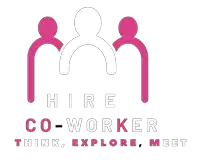The Power of CVs & Cover Letters
CVs and cover letters tell your work story. They peek into your skills, experience, and what
you hope to achieve, helping bosses see how you match their company's aims. A good CV shows your job growth,
wins, and education. But a strong cover letter shares your character, excitement, and reasons you want the job.
The First Impression
Your CV and cover letter are usually the first things bosses see. They show what you've done
at work and how well you can talk to others.
Tailoring to the Job
Changing your CV and cover letter for each job shows you really want that job and know what
the company wants.
Highlighting Your Achievements
These papers let you show off what you've done, your skills, and your experiences better
than just filling out a job form.
Addressing Potential Concern
If there are times you weren't working or things that might worry employers, your CV and
cover letter lets you explain these things upfront.
Stand Out from the Crowd
Make a perfect CV and cover letter. It can help you be different from many other people
applying and make it more likely for you to get asked for an interview.
Example of CV Letter for Job
When you want to make a perfect CV, think about this instance:
Your Name
Your Address
City, State, ZIP Code
Email Address
Phone Number
LinkedIn Profile
Current Date
Employer's Name
Company Name
Company Address
City, State, ZIP Code
Dear Employer's Name
I am penning this missive to convey my fervent enthusiasm for the etc.....
Sincerely,
[Your Name]
Best CV Letter Practices
1)Adjust Your CV and Cover Letter: Make your CV and cover letter fit each
job you apply for. Highlight skills and experiences that match the job to show you're a good fit.
2)Give Numbers for Achievements: When you can, use numbers to show what
you've done. This might be about money earned, projects finished, or how you improved things.
3)Show Your People Skills: Besides knowing how to do things, bosses also
like skills like talking with others, working in a team, and solving problems. Tell stories of when you've used
these skills.
4)Use Keywords: Use words from the job ad specific to the industry. This
can help your CV get past computer checks.
5)Keep It Short: Try to make a clear and short CV. Use dots to list what
you did and achieved. That helps bosses quickly read through it.
Building the Foundation of Your CV
Your CV isn't just a history of where you worked. It's a paper that should show your skills,
experiences, and what you hope for. This section will help you make a CV that stands out.
Structuring Your CV
Contact Information
Start your CV with your contact details. Put your name, phone number, email, and maybe your
LinkedIn page if you have one.
Professional Summary
An excellent professional summary briefly describes what you want to achieve in your career
and what you can offer.
Work Experience
Talk about your past jobs starting from the latest one. Say what you achieved and what you
were in charge of.
Education
Show your education, like your degrees, certificates, and courses that matter to the job.
Skills
Write down the skills you're best at. These can be things you can do with tech, how well you
work with others, and skills you can use in different jobs.
Awards and Achievements
Tell about any awards, special honors, or times you got noticed for doing well in your
career.
Cover Letter for CV
A perfect cover letter can make your CV even better. Look at this example:
Your Name
Your Address
City, State, ZIP Code
Email Address
Phone Number
LinkedIn Profile
Current Date
Employer's Name
Company Name
Company Address
City, State, ZIP Code
Dear Employer's Name
Content
Sincerely,
Your Name
Submitting Your CV and Cover Letter
This section looks at what you do last when applying for a job, like how to send your
application and what to do after.
Application Methods
Unravel the secrets of dispatching your CV and cover letter through myriad channels, such as
electrifying email, harnessing the power of online forms, or personally delivering them with a flourish. Delve
into the intricacies of each method and unlock the hidden doors to success.
Follow-Up
Discover the compelling reasons behind the imperative need to revisit and scrutinize your
application, and acquire the invaluable knowledge of executing this crucial task with utmost finesse and
precision.
Handling Rejections
Learn how to deal with not positively getting the job, and use it as a chance to improve
yourself.
Conclusion
Making an impressive CV and cover letter needs time, hard work, and paying close attention.
These papers help you get closer to your dream job by showing off your skills and excitement. If you match them
to the job, show how well you did, and share how you work with others, you can make a story that bosses like.
Remember, good CVs and cover letters don't just get you an interview but help you start a great career. So, make
them great and see how new chances appear.
Getting good at making CVs and cover letters takes time and hard work. But it's worth it
because they can help you find fantastic job chances. Keep making them better as the job market changes, and
you'll be on your way to success.
Think of your CV and cover letter as your best buddies on your job search. Make them with care, fit them to your
dreams, and see how they help you reach your dream job.




























